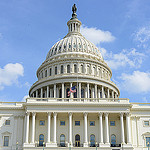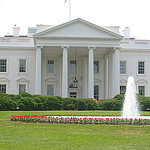
To prepare for this pandemic, our liberal and conservative leaders failed us
A lot of liberals won’t like this post. Please don’t read it if you are a liberal because you will get mad. It hurts when facts smack you in the face, so you should avoid doing that. This article points out that liberals completely failed to help the US prepare for a pandemic.
To be fair, conservatives shouldn’t read this post either because that same brick wall of facts is going to hit you in the face as well. Don’t read it as conservatives haven’t prioritized preparing for a pandemic either.
This is an article from 2009. It is from NPR, so no one is going to say it right-wing bias. Conservatives will say that it is MSM, but the facts on the ground have proven this article to be very accurate.
Here is another article by Sheri Fink that covers the various studies in 2006-2009 about how woefully prepared the US is in handling a pandemic.
In 2007 and 2006, the country did studies that showed that during a pandemic, NYC would be short 15,000 ventilators, and 150K people could die. Sound familiar? There were probably studies since the publication of these articles. So did Bush or Obama do anything? Not much, and I will suggest they did zero. Trump didn’t come into office with any insight and initiative to fix this known problem, so he is just as guilty as Bush and Obama.
There has been a total lack of leadership by Bush, Obama, and Trump on this issue.
And Governor Cuomo? Nope. He didn’t fight for it either—more lack of leadership.
And neither did Pelosi, Reid, McConnell, Ryan, Boehner, Schumer, or any other leader of our Congress. A complete lack of leadership for a situation that everyone knew would eventually happen.
BTW, the current candidates for POTUS in 2020: Biden, Sanders, and Trump – nope. None of them did anything when they were in positions that could have influenced this.
All of our government leaders failed us on both sides of the aisle. They taxed the hell out of us. They whined and complained about other stupid shit. They gave incentives for solar energy, oil production, buying stuff on the internet, buying health insurance, fighting bad guys in Afghanistan, or Iraq, or Syria. But prepare the country for a pandemic? Nope.
They all said, “Hopefully, that pandemic will happen when I am not in office, and the next person can worry about that.” Guess what, we are the next person. We are now worrying about it, and our bickering Federal government messed up big time.
The Federal government is really only good at two things
- the infrastructure that hundreds of thousands or millions of people rely on
- the defense of our country and people.
To be honest, the government isn’t all that good at those two things, but it is the only entity that can do them. The government shouldn’t be doing other things. It should focus on doing those two things and do them as well as possible, giving the inefficiencies of an organization that has no competition.
It is woefully incapable of doing anything else well. In just about every case other than the two cited, private industry that competes with others will do a better job. Will the private sector screw something up? Absolutely! But then that private enterprise will be displaced by a competitor that will perform better.
Pandemic relief falls into both categories. It is the defense of our people, and it is the infrastructure to support that defense. We did both poorly for pandemic relief, and it is now costing us dearly.
What is the solution? Throw the bums out. Every damn one of them. They failed us. They screwed up. They should be rewarded with losing their jobs.
We need politicians that are focused on just doing the two things that only the federal government can do. We need politicians to look at a bill and say, “Is this something that ONLY the federal government can do and therefore is in the above two categories?” If the answer to that question is NO, then the politicians need to vote it down. If the answer to that question is YES, then the politicians need to approve it and give it the appropriate funding and oversight that it is done as well as possible.
 I, for one, am glad that the House has decided to sue the President of the United States.
I, for one, am glad that the House has decided to sue the President of the United States.
 o predict the winner of this suit here even though I have done it elsewhere more privately. The key learning from our government regardless of who wins this little battle is that no branch of the government has the right to completely ignore the other branches nor ignore a large minority or a small majority of the people.
o predict the winner of this suit here even though I have done it elsewhere more privately. The key learning from our government regardless of who wins this little battle is that no branch of the government has the right to completely ignore the other branches nor ignore a large minority or a small majority of the people.